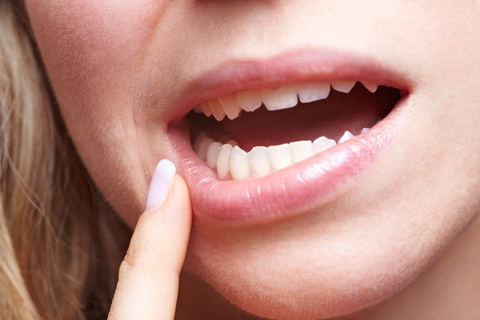July 2nd, 2015

Happy Independence Day from Drs. Bob Maley and Ann Jennen and team! The Fourth of July celebrations in America may have changed a lot over the years, but there is no doubt that we Americans love to celebrate the anniversary of our country's independence! Today we're devoting the Dr. Bob Maley Family Dentistry blog to some fun facts about the Fourth!
- My, how we have grown! This year the United States Census Bureau estimates that our country has 313.9 million residents celebrating the Fourth of July this year, but back in 1776 there were just 2.5 million members of the country.
- Our country loves to show how proud that we are of our independence. Did you know that there are 31 United States places with the word “Liberty” in their names? The state of Iowa actually has four towns with the word Liberty in the name: Libertyville, New Liberty, North Liberty, and West Liberty.
- The United States loves Fourth of July food! It is expected that around 150 million hot dogs are eaten on the Fourth each year. One of the Fourth's most popular sides, potato salad, goes just perfectly with the hotdogs and hamburgers that are standard Fourth of July fare. Some people choose potato chips instead, but we wouldn't have such a plethora of potatoes if not for the prodigious production of the states of Idaho and Washington -- they provide about half of all the potatoes in the United States today!
- Americans love celebrating the Fourth outdoors: About 74 million Americans fire up their BBQ grill every Fourth of July.
- The Chinese contribution: Did you know that Americans have spent more than $211 million on fireworks that were imported from China?
No matter how your family chooses to celebrate the Fourth, stay safe, take precautions, and don't forget to brush after your fabulous Fourth feast!
June 25th, 2015

When you were a child, your mother may have instructed you to drink all your milk to build strong bones. Now that you have children of your own, you may hear yourself parroting those instructions you received years ago. Getting enough dairy is essential for young children whose teeth are growing. A child who consumes the recommended daily serving of dairy will develop healthy, strong teeth for the rest of his or her life.
Structure of the Tooth
To fully grasp the importance of dairy for dental health, it is necessary to understand tooth structure. Your teeth are made of living tissues covered by a hard outer shell. The inner dental pulp is fed by blood vessels and connects to a nerve bed in your gums. Surrounding the pulp is dentine, a calcified tissue that is less brittle than the tooth’s outermost layer, the enamel. The enamel layer is the white part of your teeth, 96% of which consists of minerals such as calcium phosphate.
How does dairy help my child’s teeth?
Milk and other dairy products are excellent sources of calcium. Your child’s body deposits this calcium into her growing bones, including the teeth. Calcium contributes to bone growth and strength, and it forms an important part of the solid enamel that surrounds each tooth’s fragile inner pulp. Milk also contains vitamin D, phosphorus, magnesium, and proteins. Magnesium promotes calcium deposits in your enamel, while phosphorus forms a small barrier against acidic foods that cause cavities. Vitamin D and protein are used by a child’s body to build bone tissue and maintain dental health.
How much dairy does a child need?
According to a study conducted by researchers at the University of Connecticut, the majority of Americans do not receive enough calcium. The U.S. Department of Agriculture recommends that children under the age of eight should receive at least two and a half cups of dairy per day. Children older than eight need three full cups — the same as adult men and women. Supplying your child with nonfat milk to drink and yogurt to eat every day is a great way to increase dairy consumption.
Growing children who do not get enough dairy in their diets risk improper tooth development and other dental health problems. Drinking sugary beverages in place of milk causes cavities and tooth decay. As a parent, it is essential to monitor your child’s dairy consumption to ensure he or she grows healthy teeth to last a lifetime.
June 18th, 2015

The earliest sign of gum disease is called gingivitis (sometimes called periodontal disease), and is an inflammation of the gums. If left untreated, gingivitis can lead to gum tissue loss, loss of bone that supports the teeth, and eventually tooth loss. The good news is that gingivitis is easily treatable at Dr. Bob Maley Family Dentistry. Better yet, gingivitis is nearly 100 percent preventable.
Gingivitis is usually caused when plaque and bacteria accumulate on the gums, generally due to poor oral hygiene. A patient with gingivitis will have red and puffy gums that will likely bleed when he or she brushes or flosses.
It is almost entirely within our patients’ power to prevent gingivitis by brushing and flossing on a daily basis. In addition to good oral health habits, regular visits to see Drs. Bob Maley and Ann Jennen will also help with early detection. We can often detect minor inflammation and other signs of gingivitis before it causes any discomfort or issues.
If left untreated, gingivitis will eventually progress to periodontitis, a breakdown of the tissue and bone that support the teeth. Smokers, women who are pregnant or menopausal, people with heart disease, diabetes, epilepsy or HIV infection, and people who suffer from poor nutrition are more likely to have gum disease.
To learn more about gingivitis, or if you suspect you have gingivitis, we encourage you to give us a call at our St. Paul, MN office today!
June 16th, 2015
 As part of our continued efforts to provide the highest quality of care to our patients, Dr. Ann Jennen recently traveled to Key Biscayne, FL for a continuing education course on Bite Splint Fabrication the Pankey Way. Bite splints are similar to mouth guards, and are a type of mouthguard widely used to help relieve jaw pain and treat TMJ disorder.
As part of our continued efforts to provide the highest quality of care to our patients, Dr. Ann Jennen recently traveled to Key Biscayne, FL for a continuing education course on Bite Splint Fabrication the Pankey Way. Bite splints are similar to mouth guards, and are a type of mouthguard widely used to help relieve jaw pain and treat TMJ disorder.
The Pankey Institute prides itself in providing visionary dental education that addresses the technical, philosophical, behavioral, and financial habits necessary to build a successful practice. It delivers education in a supportive community of learners, and inspires dental professionals to narrow the gap between what is known and what is practiced.
In this particular course, Dr. Jennen enjoyed hands-on experience with newer products, articulators, and different materials for splints. Her favorite presenter was Sandra Caicedo, Lab Technician, who demonstrated all aspects of fabricating splints from face bow record to mounting casts to fabricating splints and adjustments.
Dr. Jennen looks forward to incorporating the techniques she learned into her day to day work in the practice. She is also a member of the SPDDS (MDA, ADA) and a member and participant of the East Metro Study Club and TC Pankey Study Club.








